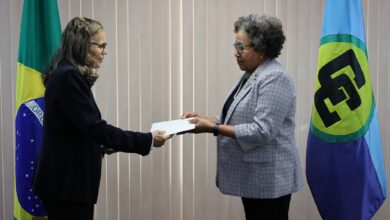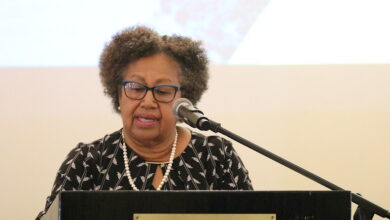(CARICOM Secretariat, Turkeyen, Greater Georgetown, Guyana) Stakeholders in the energy sector across the Caribbean Community (CARICOM) on Thursday gathered in Trinidad and Tobago for an exchange of views on the Caribbean Sustainable Energy Roadmap and Strategy (C-SERMS). The document is being used to guide the Region’s progress in the use of renewable energy and set energy efficiency targets.
About 50 participants attended the C-SERMS workshop at the Hyatt Regency in Port-of-Spain. The workshop was held on the eve of the Forty-First Special Ministerial Meeting of the Council for Trade and Economic Development (COTED) on Energy.
The forum was aimed at building awareness about the process involved in the full establishment of C-SERMS, and providing feedback that will aid in the finalization of a report on the establishing regional sustainable energy targets.
In addition, the half-day workshop also discussed sustainable and efficient energy use in the transportation and building sectors.
C-SERMS has its background in a mandate issued by the Heads of Government of CARICOM at their Twentieth Intersessional Meeting held in Belize in 2009. At that meeting, the Heads of Government had agreed that a regional sustainable energy roadmap should be developed and implemented to guide, encourage and expedite the increased use of renewable energy and energy efficiency. This stance was adopted in view of the role of renewable energy and increased energy efficiency in the Region as a key climate change mitigation strategies.
The roadmap and strategy is being established in phases. Phase One – setting initial sustainable energy targets and strategies – began in 2011 with grant funding from the Inter-American Development Bank (IDB) through a Technical Cooperation Agreement. Phase One concludes this year.
The second phase begins in 2013 with support from the Government of Germany through the German Agency for International Cooperation (GIZ) and other agencies. That phase encompasses more detailed work on the assessment of the energy sector in each Member State. Aspects of this segment of development of the roadmap and strategy include testing political feasibility of regional strategies; coordination of financing mechanisms; identification of innovative financing solutions to bridge gaps that exist; and the development and adoption of harmonized tools to support energy sector analysis, diagnosis, performance tracking and reporting.






